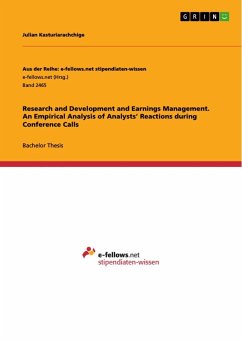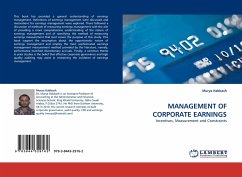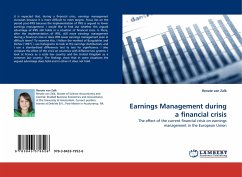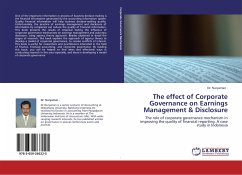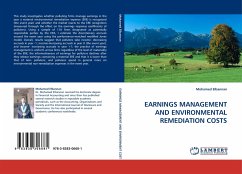
EARNINGS MANAGEMENT AND ENVIRONMENTAL REMEDIATION COSTS
Versandkostenfrei!
Versandfertig in 6-10 Tagen
32,99 €
inkl. MwSt.

PAYBACK Punkte
16 °P sammeln!
This study investigates whether polluting firms manage earnings in the year a material environmental remediation expense (ERE) is recognized (the event year) and whether the market reacts to the ERE recognition (measured through the effect on the earnings response coefficients of polluters). Using a sample of 118 firms designated as potentially responsible parties by the EPA, I estimate the discretionary accruals around the event year using the performance-matched modified Jones model. Overall, results suggest that polluters take income- decreasing accruals in year -1, income-increasing accrua...
This study investigates whether polluting firms manage earnings in the year a material environmental remediation expense (ERE) is recognized (the event year) and whether the market reacts to the ERE recognition (measured through the effect on the earnings response coefficients of polluters). Using a sample of 118 firms designated as potentially responsible parties by the EPA, I estimate the discretionary accruals around the event year using the performance-matched modified Jones model. Overall, results suggest that polluters take income- decreasing accruals in year -1, income-increasing accruals in year 0 (the event year), and income- increasing accruals in year +1; the practice of earnings management is uniform across firms regardless of the level of materiality of the ERE; the informativeness of earnings for polluters declines after they release earnings containing a material ERE and that it is lower than that of non- polluters; and polluters spend in general more on environmental non-remediation expenses in the event year.



